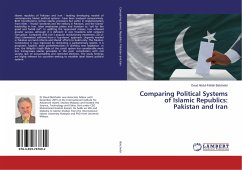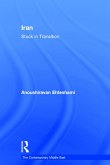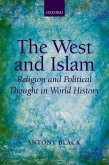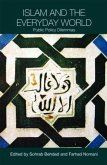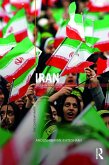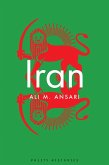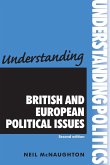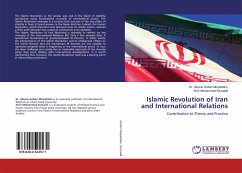Islamic republics of Pakistan and Iran - leading developing models of contemporary Islamic political systems - have been analysed comparatively. Both Constitutions contain Islamic provisions but suffer in implementation from elites - 'feudal' landlords and the military in Pakistan, and the Ulama' leadership in Iran. Islam emphasises justice and freedom to "call for the good and forbid evil". In uplifting the 'oppressed' masses, Iran achieved greater success, although it is deficient in civic freedoms with rampant corruption. Compared with Iran's popular revolutionary movement, Zia ul-Haq's Islamisation suffered from a 'top-down' approach. Urgently needed in Pakistan are land reforms and Ulama' efforts to build unity. The Pakistan Constitution is now improved by reinstating a parliamentary system. It is proposed, fuqaha' assist parliamentarians in drafting new legislation. In Iran, the Wilayat-i Faqih (Rule of the Jurist) system has considerable merit but transgresses Islamic principles in the poor consultation with civil society, lack of accountability and restricted elections. The study findings are highly relevant for countries seeking to establish ideal Islamic political systems

